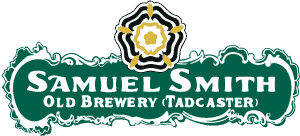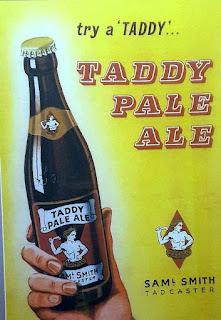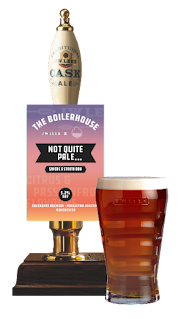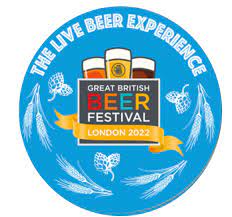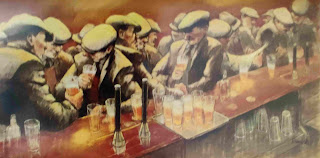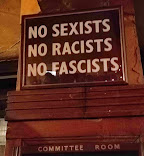Many years ago when I was working, for a couple of years, I used to visit Belfast probably once a month or so. I remember then that Special Branch paid a fair bit of attention to travellers, and at Manchester Airport, I was asked more than once for my reason for visiting. "Business - Government business" was my answer. I was quick to add that it was Social Security business and that was that. No such problems at Manchester Airport now, but I still find it fun, when asked about why I went to Belfast, to tell people that I used to advise the Northern Ireland Government. Well, I did, but it sounds a lot less impressive when I reveal that it was about how to integrate NI and GB Social Security computer systems.
So, last month we went for a few nights, just for pleasure and in my book, that was going to be trying out a few more pubs than I was able to visit then. Back in the day, my visits to pubs were fairly few and confined, more or less, to those that were near the famous Excelsior Hotel, where I usually stayed. This time, we stayed in a nice hotel in the Botanic area and as we walked from the bus station towards it, I was pleased to note that Great Northern Tower, where I worked, was still there and right next door to the famous Europa Hotel. I didn't remember it being quite so close, though opposite was the Crown Liquor Saloon, which I did.
After checking in, we set off to get the feel of the place and to visit a few pubs, more of which later. But for now, I'll just mention one or two differences between Nornireland pubs and those in GB. Firstly, they just seem more professionally run. Most of the bar staff aren't teenagers with a combined inability to look you in the eye and the attention span of a gnat, but older men and women who clearly regard bar work as a profession. In short, the service was almost universally great, as was the conversational nature of the transactions. The pubs varied a lot, but were clean, warm and welcoming. Not exactly like GB pubs, more like in Ireland, without a telly on every vertical surface.Now what about the beer? Well, you won't be surprised that Guinness is pretty much the leading drink there. I was though, a little surprised at the lack of imported brands, although there were a few (mostly lagers) from Ireland. Some from GB of course and surprisingly few local beers at first glance, though I suspect the major brewers have much of the taps tied in one way or another. We started off in Robinsons, a fine big boozer next to the Crown Liquor Saloon. Our choice? Well, Guinness of course - you have to for your first at least don't you, and this was a fine example of what I regard as a pretty unimpressive beer. I had learned before I went there that the gas mix in Ireland - presumably including the North too - is a 75/25 nitrogen to CO2, whereas in GB it is 70/30, making for a less creamy and smooth pint than in Ireland. The atmosphere was good and late on a Tuesday afternoon, the pub was busy with a constant stream of people nipping in for one after work.
Now I'll return to other pubs in my next post, but my final two observations are one particular one and one more general. Aren't the people there just lovely? Everyone was so helpful and pleasant, from bar staff to bus inspectors - yes they still have them there - and a finer body of ladies and gentlemen you couldn't wish to meet unless you were a fare dodger of course, which we weren't.
And the last point? Belfast City Centre was pretty much like any other British City Centre. If you think it might feel a bit Irish - well, not to my eyes.
Next up Bittles Bar - Did we get thrown out for requesting a half pint?
There are some smashing restaurants around in Belfast too. Together with great pubs, loads to see and do, and of course, the Titanic Experience, I recommend it highly.




